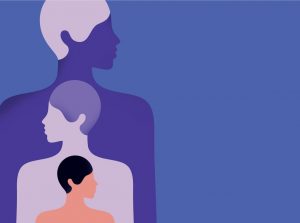Lara Feigel in The Guardian:
 When Viv Albertine performs her 2009 song “Confessions of a Milf” live, she alternates between two voices. There’s the saccharine lisp of a brainwashed housewife chanting “home sweet home”, and there’s the raging chant of an angry punk proclaiming that “if you decide one day that you’ve had enough”, you can walk away. Though swans and seahorses mate for life, “we ain’t so nice”. In the 70s, when Albertine performed with her punk band, the Slits, she appeared fully immersed in her performance of exuberant anger, but also strikingly unformed, too busy bouncing and shouting to hold the gaze of her audience. Then, she retained the vulnerability of her younger self, but there was a steeliness underlying it. Now she stares out at us, no longer interested in hiding.
When Viv Albertine performs her 2009 song “Confessions of a Milf” live, she alternates between two voices. There’s the saccharine lisp of a brainwashed housewife chanting “home sweet home”, and there’s the raging chant of an angry punk proclaiming that “if you decide one day that you’ve had enough”, you can walk away. Though swans and seahorses mate for life, “we ain’t so nice”. In the 70s, when Albertine performed with her punk band, the Slits, she appeared fully immersed in her performance of exuberant anger, but also strikingly unformed, too busy bouncing and shouting to hold the gaze of her audience. Then, she retained the vulnerability of her younger self, but there was a steeliness underlying it. Now she stares out at us, no longer interested in hiding.
…In her recent memoir To Throw Away Unopened, Albertine describes deciding to return to music after more than a decade as a housewife, ending her marriage as a result. In the past century of fiction, the middle-aged male protagonist has sprawled and rutted his way to a kind of bathetic greatness in the hands of Philip Roth, John Updike and Saul Bellow. The middle-aged woman has appeared far less often as a protagonist questing for a style and identity, but that is changing fast. Albertine is one of several writers this year to tackle lives that follow divorce and the menopause. Lavinia Greenlaw’s forthcoming novel is a middle-aged love story. Deborah Levy uses the moment of transition from one life to another to fashion a new story about femininity in her “living autobiography” The Cost of Living. Like Albertine’s, Levy’s career began in an era when the young insisted on their own youthfulness. What’s striking is that both writers have found a way to incarnate their middle-aged selves in new voices that don’t reject the spontaneity of punk but reinvent it in a quieter yet no less vigorous form.
More here.
